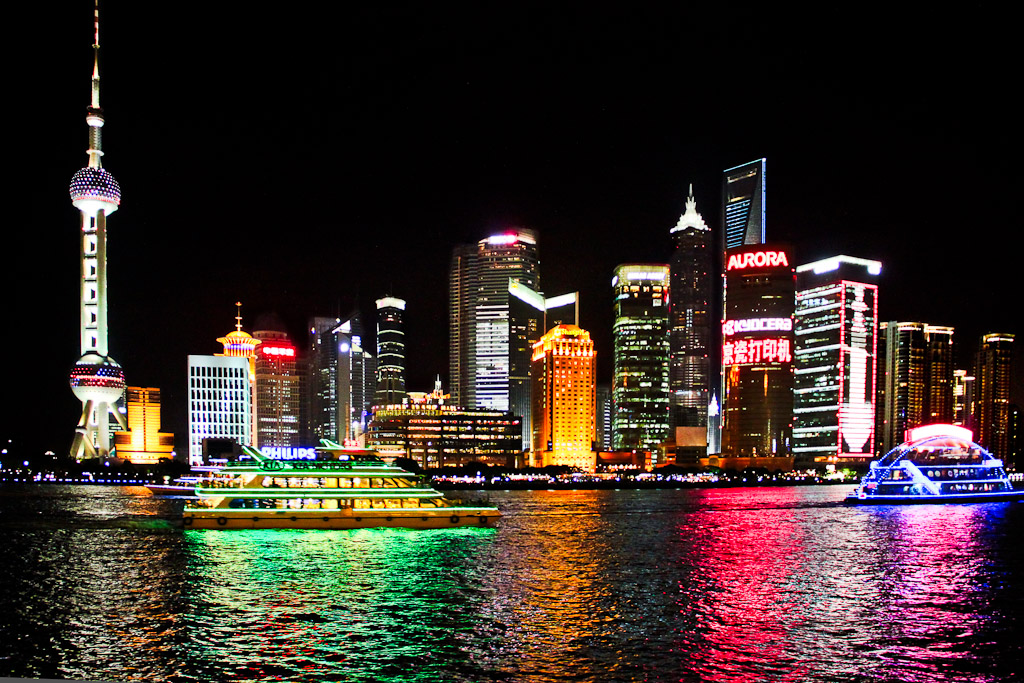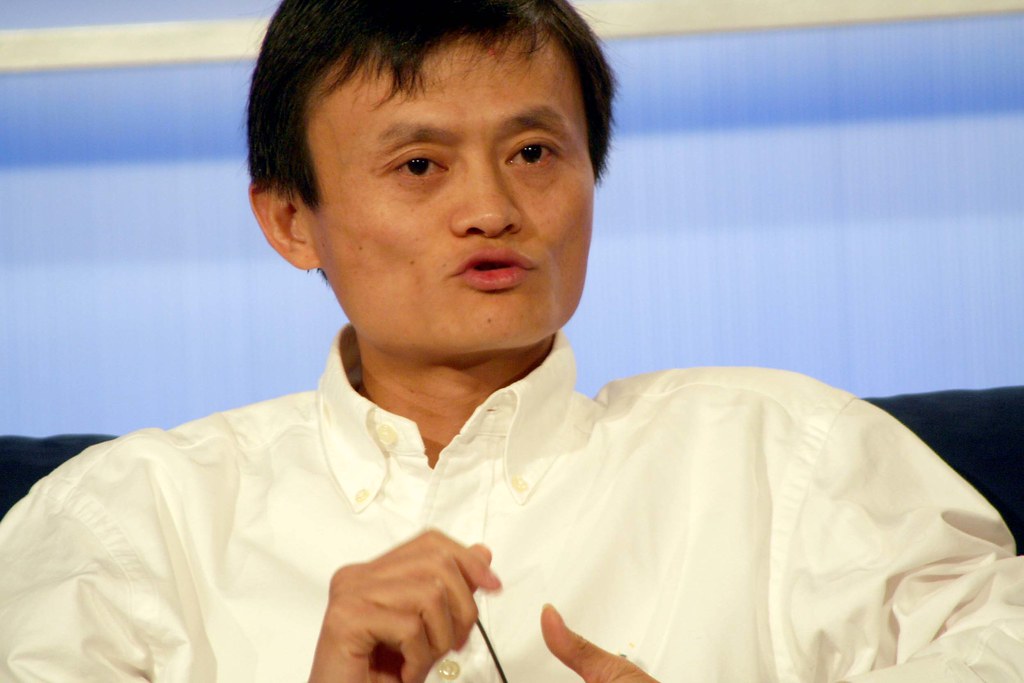When you combine the world’s second-largest economy, largest population, and the world’s largest manufacturing sector, that’s already a lot to compete with. Add to this the fact that the whole country works like one well-oiled communist machine and the odds to effectively compete against it go down further. But apart from these strengths, and definitely because of them, a Chinese company that’s making a mark on the global cloud computing industry is Alibaba Cloud.
Cloud olympics

At its Computing Conference, which took place from Oct. 11-14, Alibaba Cloud president Simon Hu expressed his confidence in the company’s ability to beat the United States in the cloud wars. While he doesn’t forget to point out China’s superior manpower and manufacturing, what’s really interesting here is that he’s looking at it like the United States vs. China.
While Jack Ma, executive chairman of Alibaba Group, is known for his promises to knock AWS off the top spot, for Hu it’s more of a national issue. He also mentions that Alibaba Cloud executives only expect the U.S. and China to ultimately compete in the global cloud computing market, adding his opinion that his country will have the advantage because of its general experience dealing with issues at scale.
Super-scaling
Now there’s scale and there’s Chinese scale — everything from baseball caps to iPads and sneakers is made in the billions, and the largest population in the world is kept busy and productive for the greater good of the country. Hu told the audience that success in the cloud-service sector hinges more on “large-scale operational experience” and less on technology. What he might actually be saying here is that Alibaba is already experienced in dealing with problems in the billions and it’s not the hardware that does the job but rather the software.
He emphasizes this point further by again possibly referring to AWS as the United States and saying while it may lead the race in cloud computing, China is busy developing mature service applications that continue to propel the development of Alibaba Cloud.
Elasticsearch on Alibaba cloud
We don’t really think about software when we think China — it’s always the hardware — but there’s no denying a huge percentage of the world’s brains are on tap in that country with lots and lots of beautiful code being written every day. It’s also worth pointing out that though Chinese software may not be popular in the West, they use standard programming code like the rest of the world, with only the use of Chinese variables or comments.
Speaking of software, search engine company Elasticsearch has its eyes on Alibaba Cloud’s 2.5 million customers who will now have access to its technology in the form of a new search option for software they’re building. Obviously, Alibaba will be in the driver’s seat and to explain this, the statement from Elasticsearch was “Alibaba knows how to market to the Chinese developer ecosystem.” What that actually means is Alibaba controls that market and can tell Chinese developers exactly what they can and cannot use, so it’s a lot easier this way.
Global domination
Another interesting point from Hu is his mention of the “One Belt, One Road” initiative, which he says “is helping Alibaba Cloud and other China-based enterprises boost industrial upgrading and technological development based on cloud computing, big data and artificial intelligence.”
A lot of big words, but the One Belt ,One Road (or OBOR) is a plan jointly released by the National Development and Reform Commission and the Ministry of Commerce of China. OBOR seeks to enhance regional connectivity across Central Asia, West Asia, the Middle East, and Europe. While supporters suggest the initiative aims to provide economic aid to needy economies, critics claim it’s all a Chinese ploy to gain strategic domination of the countries along these routes.
This isn’t just old silk-route connections, either, and Alibaba Cloud’s recent launch of the Dubai datacenter is an example of the OBOR initiative. Puming Li, general secretary of the National Development and Reform Commission of China, applauded Alibaba for the development with full nationalistic pride, saying, “Alibaba Cloud has made remarkable contributions to China’s technology and globalization.”
Making everyone an AWS

In a recent interview with Fortune, Jack Ma said that right now only 5 percent of their business comes from outside China and he expects that number to grow to 40 percent in the next 10 years. To demonstrate just how valid the threat is to AWS’s top spot, Alibaba briefly unseated Amazon as the world’s most valuable online retailer in U.S. stock market value in October, when shares closed at $184.46 in the morning session, giving it a market value of $472.4 billion and surpassing Amazon’s $470 billion. In fact, Jack Ma said in the same interview that the goal is not to become like AWS but to enable everyone to become an AWS.
You may wonder what he means by make everyone an AWS, and what he’s probably inferring here is that anyone with the right tools can do the job. To supply everyone with those tools, the Alibaba DAMO Academy is Alibaba’s first global initiative to bankroll some of the most frontier research in the subcontinent. This research will cover everything in modern technology from data intelligence and Internet of Things to quantum computing and human-machine interaction.
Project DAMO
DAMO stands for Discovery, Adventure, Momentum, and Outlook, and it is looking to recruit 100 talented researchers from around the world. The academy will be headed by Jeff Zhang, the group’s chief technology officer, who was quoted as saying “we are now looking for talented researchers to join us in the quest for original and disruptive technologies that will ultimately change the world.” He also boasts that because of China’s talent and technology combination, DAMO will overtake research facilities built by IBM, Microsoft, and Intel to become the global leader in technology research. Jack Ma’s words were even more dramatic — he said it would contribute to “society and era.” He also added that “the technologies developed at the DAMO Academy are expected to serve at least 2 billion consumers around the world and help Alibaba create 100 million jobs worldwide by 2036.”
Additionally, Alibaba will open research labs in Beijing, Tel Aviv, Hangzhou, Singapore, Moscow, as well as in San Mateo, Calif., and, perhaps most interesting, Bellevue, Wash. — right in Amazon’s backyard. These will focus on areas that include machine learning, network security, visual computing, and natural language processing.
The new IaaS king
In terms of pure hardware and Infrastructure as a Service, Alibaba has already knocked Google off the third spot according to analyst outfit Gartner’s first-ever attempt at calculating market share in the field. The report also claims that the IaaS market alone hauled in $22.1 billion in 2016, up from $16.8 billion in 2015, a 31.4 percent growth across the sector.
IaaS includes basic computing, data storage, and networking services that companies can rent but does not include software like PaaS. So this really isn’t surprising that Alibaba is No. 3 considering it manufactures a whole lot of hardware already. What is surprising, however, is that it also beat AWS in terms of revenue growth in IaaS and now leads Gartner’s new list with worldwide cloud revenue more than doubling since last year. This should be taken in perspective as AWS is way bigger and its growth percentage would naturally be less than its competitors. Still, Alibaba Cloud is making quick progress. Time will tell how long this growth that continues, and if it’s enough to challenge its larger American rivals.



